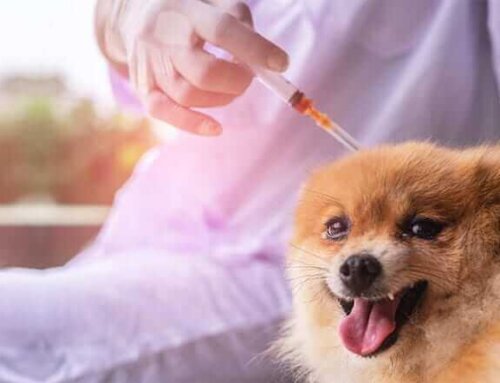We try our best to keep our pets from harm’s way. Even for those of us who are thoughtful and educated and even a smidge neurotic about our pets, things don’t always go as planned. As one of my best friends likes to say about me, I’m the “stupidest brilliant person” she knows. You just never know when something completely unexpected will happen. Indeed, sometimes things that seem innocent enough can cause serious problems for our furry friends.
If the ingestion of a toxin is caught in a timely manner and the chemical isn’t caustic we will likely induce vomiting or perform gastric lavage. Some toxins require the oral administration of activated charcoal to prevent further absorption of toxin that has already left the stomach. IV fluid therapy may help flush a product from the body. And finally, some toxins have an antidote.
- Tylenol and ibuprofen – Dogs and cats have different liver enzymes and tolerances to medications than we humans. Two of the most common medication toxicities I’ve treated are Tylenol and ibuprofen. Well-meaning humans may give a pet with a lameness or boo boo a human pain medication and make matters much worse. Or, a goof-ball Labrador may think it is a good idea to chew up the entire bottle of Advil! These products can be very toxic – even life threatening – to dogs and cats.
- Irises – They look beautiful in our homes around Easter and Christmas, but make no doubt that they can be toxic to kidneys should your pet chew on one!
- Slug bait and compost – For both these situations neurological signs predominate. I once worked with a veterinary technician who lamented that they don’t make activated charcoal in slug bait and compost flavors. It might make it a whole lot easier getting activated charcoal into the knucklehead dog that thinks these are tasty!
- Rat bait – Rat bait can be the type that causes a coagulation disorder or it can be the type that presents in neurologic signs. Either way, if you have a pet, rat bait is a risky product to have around the home.
- Xylitol – In recent years more and more sugar free chewing gums use xylitol as the sweetening agent. Unfortunately, this product can cause liver and neurological signs in dogs.
- Antifreeze – At this point probably all of us have heard about this poison. It is one of the most heart-breaking toxicities I’ve ever treated. Many years ago when I was an ER vet I euthanized 3 cats one evening from one home which had all gotten into this highly poisonous fluid. All 3 cats presented seizuring and comatose. That remains the worst day of my 19 years of veterinary practice. That woman’s entire pet family was lost that night. Unfortunately, once cats are showing clinical signs (typically neurologic signs or kidney failure) it is extremely unlikely that they will survive. Even for dogs the prognosis is guarded and the treatment is expensive.
- Raisins and grapes – Although the toxicity is not well-defined, some dogs and perhaps even cats can get kidney disease secondary to raisin or grape ingestion. Heck, as a kid I’m sure I gave hundreds of raisins and grapes to my dogs. I was lucky. The toxic substance in raisins and grapes still has not been identified, but it is just safest to avoid giving raisins and grapes to our pets.
- Medications you may be taking – If you are on a medication, take care to keep it away from your pets. Over the years I’ve heard stories of owners taking their pet’s pills and accidentally giving the pet their human medications. Back in the early 90s I remember a client who had dropped her pill and thought her dog had ingested it. She searched the floor. She called the ER. It was an obscure medication, so we consulted Poison Control. The toxicologist indicated that the medication (the name of which nearly 2 decades later my middle-aged brain can’t recall) would have been quite toxic to that little white fur ball of a dog. We induced vomiting. We gave activated charcoal. I remember that he was an uncooperative patient who wanted no part of our medical shenanigans. Then after all that I found said missing pill in the fur of the pet’s fuzzy interdigital area on the bottom of his foot. The take home message: Just be careful when you are on a prescription medication and have pets.
Here are some of my favorite veterinary toxicology websites:
Finally, I’ll offer a bit of common sense that has nothing to do with toxins. If your pet is repeatedly chewing on an object, you might consider removing the object from the home or denying your pet access to the tempting object! I remember a couple years ago treating a pet who had been eating a throw rug. The owner commented that the dog had been eating parts of the rug for weeks and then vomiting. When I treated the pet he had been vomiting and inappetant for 2 days. Of course the rug was a prime suspect. When I suggested removing the rug from the home the owner admitted she hadn’t considered that option. Sometimes we need to be smarter than our pets.
NOTE: Consult your Veterinarian first to make sure my recommendations fit your special health needs.












Leave A Comment